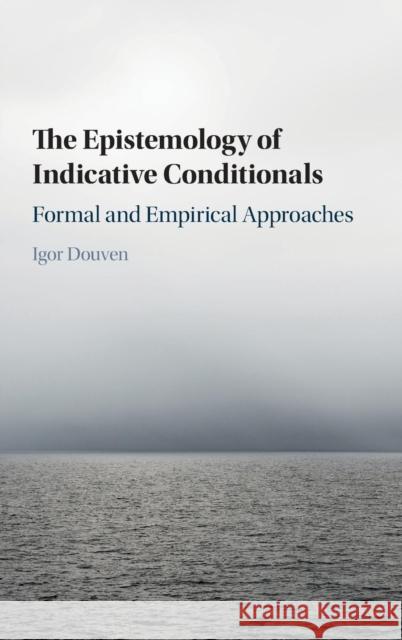The Epistemology of Indicative Conditionals: Formal and Empirical Approaches » książka
The Epistemology of Indicative Conditionals: Formal and Empirical Approaches
ISBN-13: 9781107111455 / Angielski / Twarda / 2015 / 234 str.
The Epistemology of Indicative Conditionals: Formal and Empirical Approaches
ISBN-13: 9781107111455 / Angielski / Twarda / 2015 / 234 str.
(netto: 547,09 VAT: 5%)
Najniższa cena z 30 dni: 382,84
ok. 16-18 dni roboczych.
Darmowa dostawa!
Conditionals are sentences of the form 'If A, then B', and they play a central role in scientific, logical, and everyday reasoning. They have been in the philosophical limelight for centuries, and more recently, they have been receiving attention from psychologists, linguists, and computer scientists. In spite of this, many key questions concerning conditionals remain unanswered. While most of the work on conditionals has addressed semantical questions - questions about the truth conditions of conditionals - this book focuses on the main epistemological questions that conditionals give rise to, such as: what are the probabilities of conditionals? When is a conditional acceptable or assertable? What do we learn when we receive new conditional information? In answering these questions, this book combines the formal tools of logic and probability theory with the experimental approach of cognitive psychology. It will be of interest to students and researchers in logic, epistemology, and psychology of reasoning.











